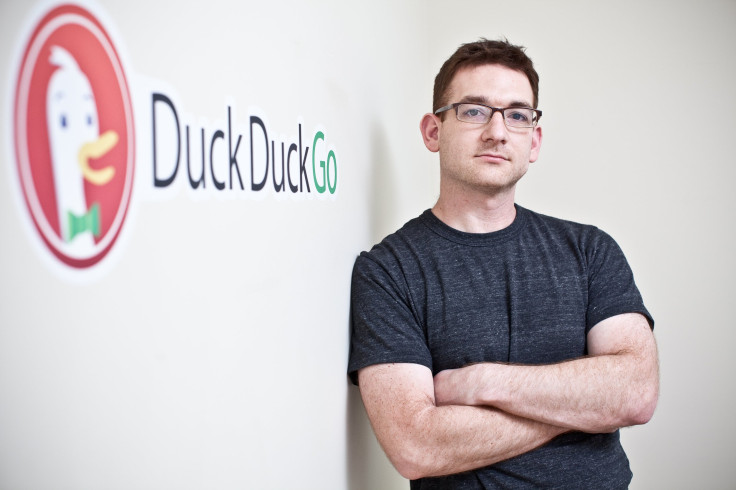Thanks, NSA! DuckDuckGo, Privacy-Conscious Search Engine, Has Grown 600% Since Surveillance Programs Revealed

DuckDuckGo, a startup search engine that has built its reputation as the anti-Google, has grown 600 percent in the last two years, mainly due to growing worldwide privacy concerns following the disclosures of mass surveillance programs by the National Security Agency and other government bodies. The Paoli, Pennsylvania, company bills itself as "the search engine that doesn't track you" and refrains from giving users a personalized search experience as dpes Google with its search business. That approach has been a boon for the company since whistleblower Edward Snowden leaked documents in 2013 showing the many ways NSA and other agencies follow users' online activities.
DuckDuckGo has also been aided by Apple, which incorporated it as an option for its services last year, letting iPhone and Mac users choose it as their default search engine alongside Google, Bing and Yahoo. Between the help from Apple and privacy concerns, the company is now handling 3 billion search queries per year, CEO Gabe Weinberg told CNBC.
Despite DuckDuckGo's growth in the past two years, the company has yet to put a dent in Google's dominance of the search market. The Pennsylvania startup accounts for less than 1 percent of the U.S. mobile search market, according to StatCounter. But Weinberg said he is confidant the company can keep growing, adding even without tracking, DuckDuckGo is able to sell ads.
"It's really a myth that you need to track people to make money in search. We make money with keyword advertising. Type in 'car' and you get a car ad, and it's really that straight forward," Weinberg told CNBC. "Google tracks you on all these other sites because they run huge advertising networks and other properties, like Gmail and photos, and so they need that search engine data to track you. That's why ads follow you around the Internet."
"If you just focus on Web search, you don't really need to track people," Weinberg said.
© Copyright IBTimes 2024. All rights reserved.





















